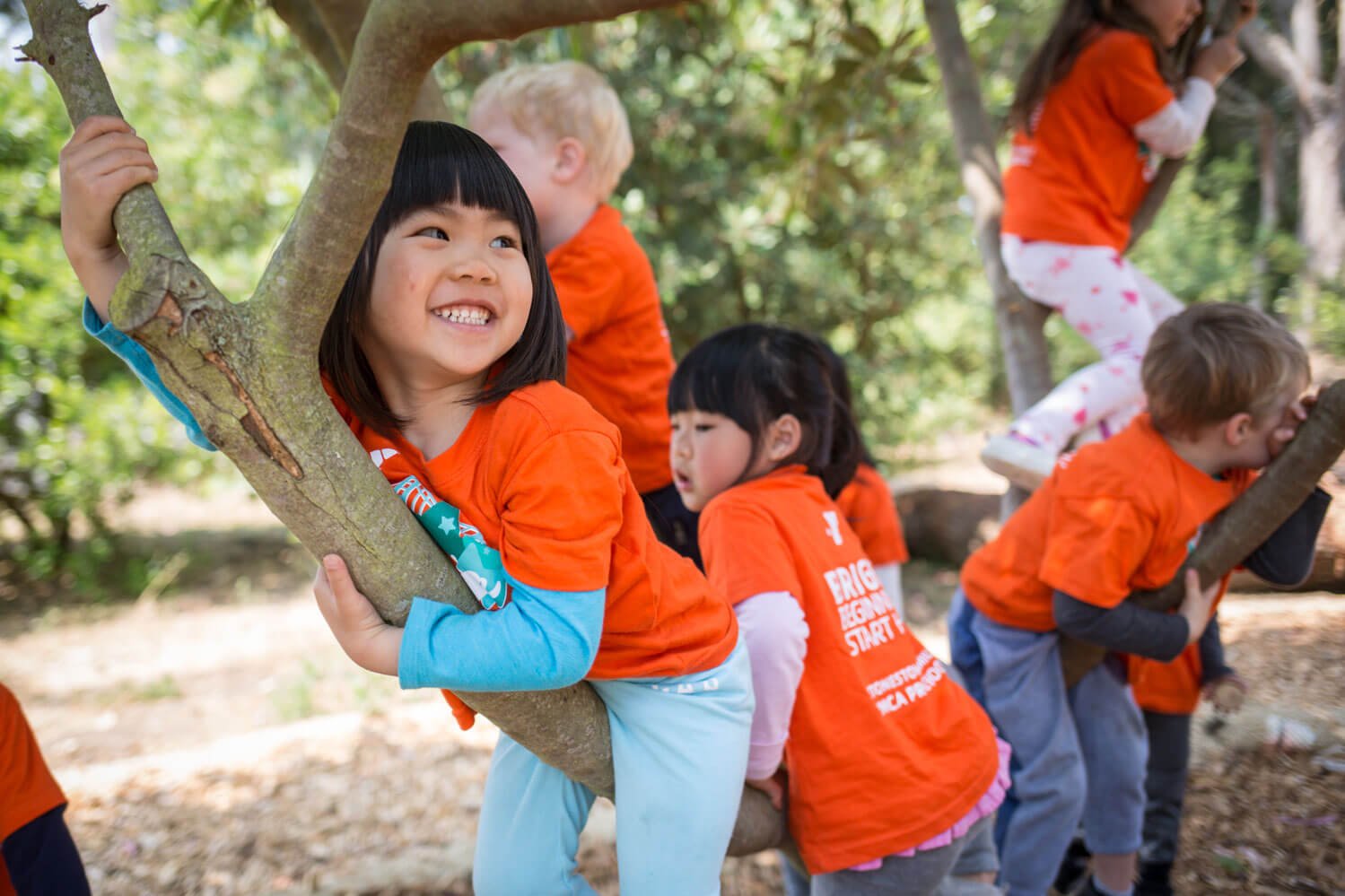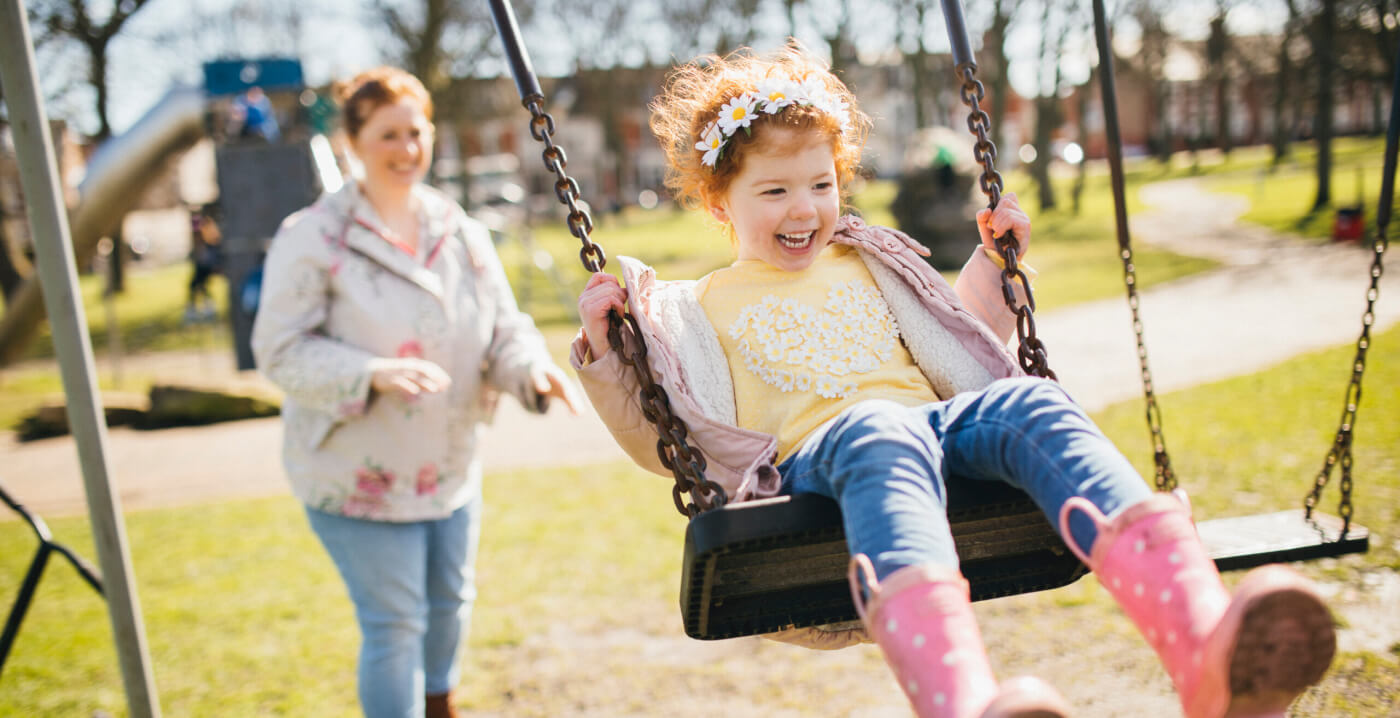Kids need to be outside.
A joyful childhood, a healthy adulthood and a thriving planet depend on it.
Spending time in nature makes kids healthier, happier and smarter. It also helps them become good stewards of the environment. These statements are based on a solid and growing body of research. This toolkit will help you access that research and other resources to “make the case” for equitable access to nature.
Get started with this short evidence-based video:


LET’S MAKE THE CASE FOR THE BENEFITS OF NATURE!
Overview
Children are healthier when they live, learn and play in and around nature. “Greenness” near homes, schools and in the community can support healthier birth outcomes; increased physical activity and healthier weight in children; more robust immune function and reduced nearsightedness. It is essential for healthy development in children. Sometimes, children from disadvantaged backgrounds benefit more from nature than their peers who face fewer challenges.
Evidence-based talking points:
- Living in greener neighborhoods may offer numerous health benefits for children, including increased physical activity, improved mental health and improved microbiota health.
- Time outdoors may reduce the risk for, and progression of, myopia.
- Play and learning in natural environments tend to promote increased physical activity, improved motor skills and decreased sedentary time, which is beneficial for various health outcomes in childhood and beyond.
- Mothers living in greener neighborhoods, especially those from less advantaged backgrounds, tend to have healthier newborns.
- School gardening programs may foster healthier weight and improved nutrition for students.
- Increasing children’s access to natural environments may help reduce health equity gaps.
Resources:
- Make the case with this downloadable infographic
- Reference research on nature’s benefits for health in this Research Digest
- Access our full Research Library and Research Digest Archive
Overview
Living in greener environments and engaging with nature and companion animals can enhance children’s mental health and emotional well-being. For kids, this means more positive moods; greater resilience and improved ability to deal with stress; higher self-esteem; improved self-regulation; and more positive social interactions. In some cases, it’s the most vulnerable or marginalized children who can benefit most from nature.
Evidence-based talking points:
- Children living in greener environments tend to have more positive moods, lower stress and more positive social interactions.
- Green schoolyards and access to other public greenspace can promote the social and emotional well-being of children.
- Engagement with nature is linked to reduced stress and anxiety in children and youth and may contribute to childhood and later life mental health.
- Nearby nature bolsters children’s resilience in the face of adversity. Children in natural environments tend to engage in more frequent positive social interactions and in constructive, associative and cooperative play than in built environments.
- Nature-based interventions may promote the well-being of children with special needs, including reducing symptoms of ADHD.
Resources:
- Make the case with this downloadable infographic
- Reference research on nature’s benefits for mental health and well-being in this Research Digest
- Access our full Research Library and Research Digest Archive
Overview
Nature improves academic performance. Just being in and around nature enhances attention and self-regulation in children, and decreases stress. These factors help kids learn and retain information. Additionally, nature-based teaching increases student engagement and enthusiasm, which supports cognitive function, learning and achievement. Greening around schools and nature-based learning can also support students with special needs and may be especially helpful for disadvantaged students.
Evidence-based talking points:
- In some contexts, nature-based learning (NBL) outperforms traditional classroom-based learning. When NBL only matches classroom-based learning, its concurrent health, mental health and social-emotional benefits argue for its relative value compared to traditional educational approaches.
- Academic outcomes may be related to both exposure to nature itself and the impact of nature-based instruction, affecting the capacity of students to learn and creating a supportive context for learning.
- Passive exposure to nature at school, such as through greenery surrounding the school, green views from school windows and the presence of green walls in the classroom, can support academic success and the functions important for learning. These include cognitive functions such as attention, memory and self-regulation; emotional functions such as stress regulation, emotional regulation and well-being; and social functions such as prosocial behavior.
- Nature-based instruction and outdoor learning support academic success and several functions important for learning. These include motivation and engagement; cognitive functions such as attention, working memory and self-regulation; emotional functions such as stress regulation, emotional regulation and well-being; and social functions such as prosocial behavior and cooperation.
- Learning specifically in school gardens promotes nutrition-related knowledge and may contribute to academic outcomes.
- Time outdoors during the school day, such as through recess, holding classes outdoors and outdoor walks on school grounds, supports cognitive functioning, contributing to students’ academic success.
- Greener environments and time in nature may support learners with special needs, for example, by enhancing attention skills and reducing symptoms of ADHD.
- Greening around schools and nature-based learning and play help disadvantaged students.
Resources:
- Make the case with this downloadable infographic
- Reference research on nature’s benefits for learning in this Research Digest
- Access our full Research Library and Research Digest Archive
Overview
Spending time in nature creates “nature champions.” Time spent in nature as a child, particularly in activities or places that evoke an emotional connection, can foster care and concern for the natural world. Both free play in nature and experiencing nature with a caring adult facilitate such a connection. These experiences can enhance positive attitudes toward the environment, encourage children to learn about environmental problems and solutions, and take actions that demonstrate care for the Earth. An added bonus: children who are strongly connected to nature tend to have better mental health and satisfaction with life.
Evidence-based talking points:
- Childhood time outdoors in nature can foster connections to nature and offer a pathway to pro-environmental behavior in childhood and adulthood.
- In addition to emotional bonds with nature, environmental literacy through environmental education can also support children’s pro-environmental behavior.
Resources:
- Make the case with this downloadable infographic
- Reference research on how nature connection fosters environmental stewardship in this Research Digest
- Access our full Research Library and Research Digest Archive
These additional resources are designed to help you understand and advocate for equitable access to nature everywhere children live, learn and play.
- Benefits of Nature 101: Watch this info-packed video for a comprehensive overview of nature’s benefits. It’s a master class in 17 minutes flat.
- Infographics: Download and share infographics, including our series on the benefits of green schoolyards.
- Research Library: Access summaries of more than 1,400 peer-reviewed articles on the benefits of nature.
- Research Digest: Subscribe to receive the latest research on children and nature each month.
- Research Digest archive: Find all of our past Research Digests.
- Finding Nature News: Subscribe to receive fresh news and stories about the benefits of nature for children, families and communities.


Benefits of Nature In Action
SUPPORT OUR WORK
Help us make sure that all children live, learn and grow with nature in their daily lives.
Donate Membership







